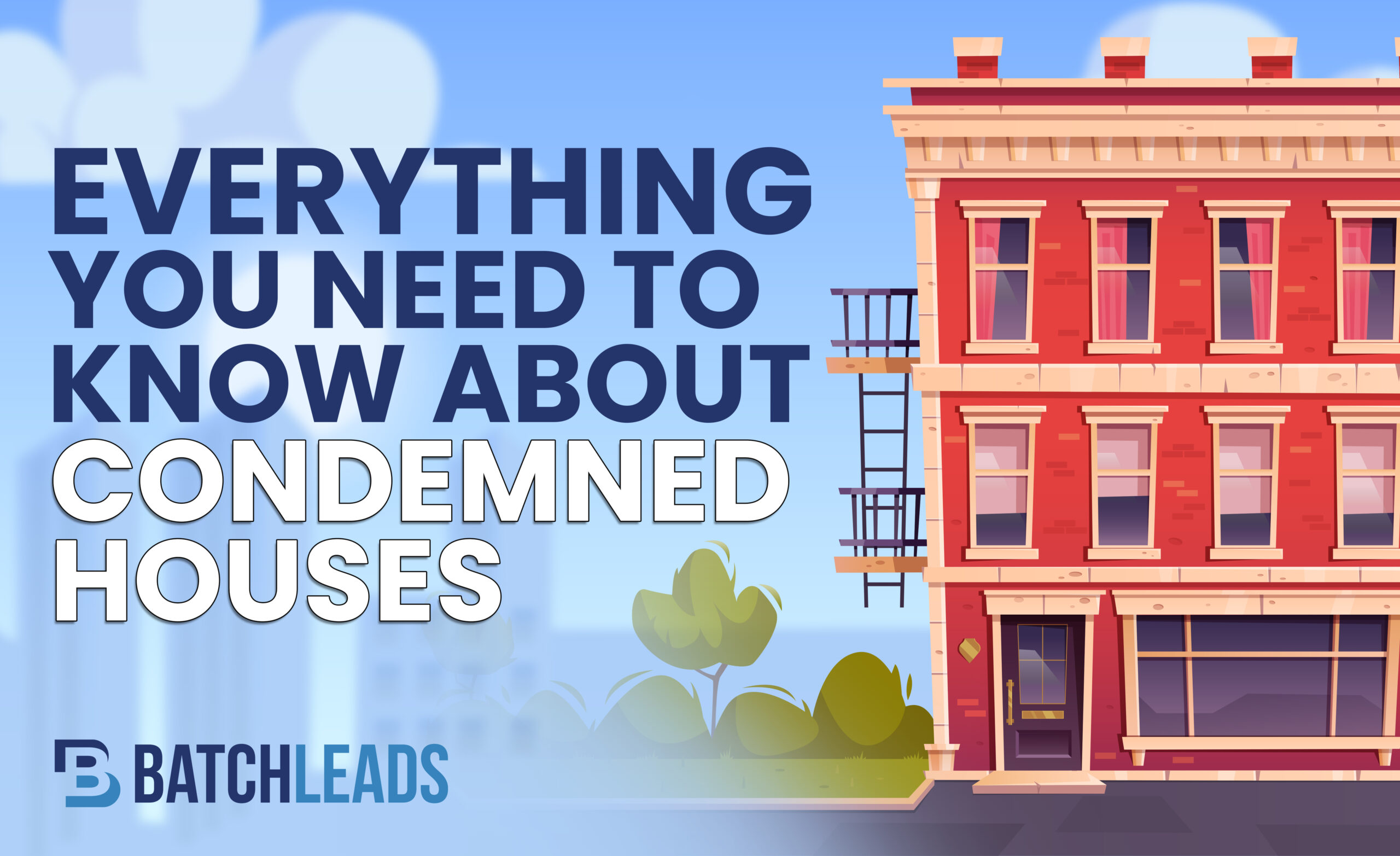Your real estate business will be the most successful when you can keep making deals and keep profits flowing. At times the market will get tight, and inventory will be low. In these moments, look for options other investors may overlook or ignore. Condemned houses can be great real estate investment opportunities.
What is a condemned house?
Several things can lead officials to condemn a home, but safety is the most common issue. The local authorities have decided that some problems are so severe that the property is not fit for habitation. If the issues aren’t addressed, some localities will demolish condemned homes.
Why is a house condemned
So, what type of things would lead to the condemnation of a home? Let’s start with the essential utilities. In most municipalities, a house that does not have working plumbing or electricity is not considered livable.
Structural problems will also lead officials to condemn a home.
Concerns about health hazards can also lead officials to condemn a house. You may see a condemnation notice for homes with severe cleanliness problems or built with materials that are now considered unhealthy.
How to buy a condemned house
Buying a condemned home works the same way as any other real estate transaction, but there are more factors you need to check before you close the deal. Find out who is in charge of the property. Owners will sometimes stop paying for a condemned home. If it is in foreclosure or owned by the government, you will have to work with those agencies to make the deal.
Check to see if the title is clear. Someone may have started work on the property in the past and abandoned it, leaving construction liens on the property. You can still buy the home, but you will be responsible for any remaining debt.
Address your financing. For cash buyers, the process is rather simple, as you’ll just need to ensure you have the funding necessary to buy the home and take care of the necessary repairs. Borrowers will need to work with their bank or lender to secure funding, and financial institutions may be hesitant to issue you a loan or mortgage for a condemned house. Research comps and be prepared to explain the value of the property to your lender.
Pros of purchasing
The most significant benefit to purchasing a condemned home is the opportunity for a deal. Other potential homeowners or real estate investors often don’t want to take on all the work involved with these properties. The seller may be motivated to get the property off their hands, giving you a chance to purchase the property below market value.
Cons of purchasing
The drawbacks of condemned homes will start with whatever caused them to be condemned. If a home is so structurally unsound that it needs to be torn down, you will need to consider new construction costs.
Things like plumbing, electrical work, or hazard abatement may be simpler but beware of opening a can of worms. In most municipalities, you must bring every part of a property up to code once you start working. Even if the house was condemned for lousy wiring, you might also have to replace old plumbing.
Key takeaways
Taking a chance on a condemned property can seem risky, but there is a potential for a big payoff. You can buy homes at low costs in great neighborhoods and make them exactly what you want. Avoid bidding wars by targeting off-market property or homes that other buyers have overlooked. As long as you’re prepared for the unknowns, you can capitalize on a great opportunity.



